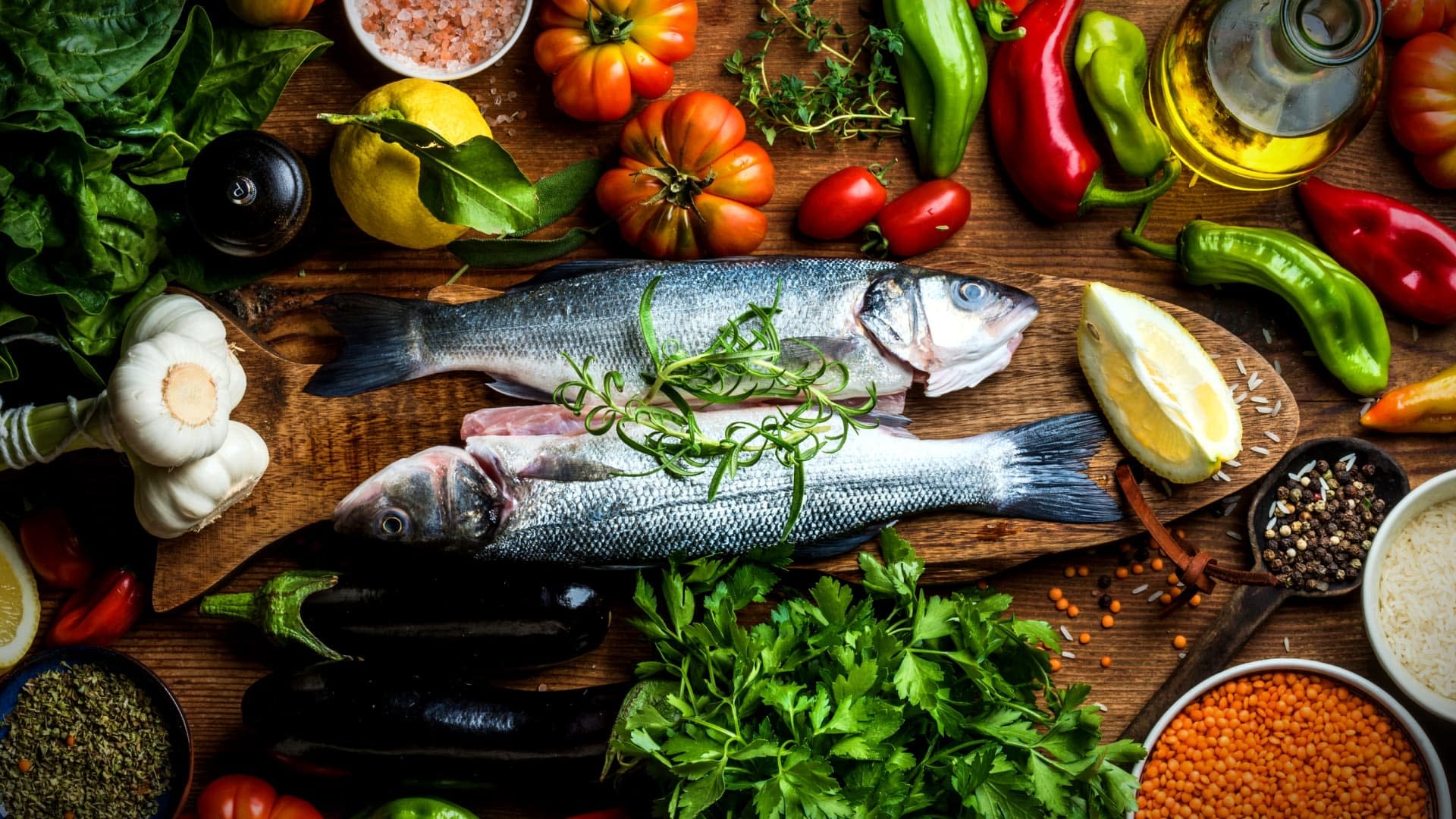Health
After research stating that organic food is key to the health benefits of the Mediterranean diet was published in October, food experts at Oldways have responded that eating a non-organic version of the diet is still preferable to following a traditional Western diet.
The experts from the non-profit added that the health benefits of the Mediterranean diet have repeatedly been demonstrated.
This most recent study, which was published in the American Journal of Clinical Nutrition, measured the consumption of chemical residues and pesticides by participants who switched from a Western diet to a Mediterranean diet.
The researchers then compared those results with subjects who made the same switch but ate only organic food.
“Not surprisingly, pesticide residue levels were much lower in people after eating the organic diet compared with either of the conventional diets,” Oldways wrote. “Interestingly, the study also found higher levels of pesticide residues after eating the conventional Mediterranean diet compared with the conventional Western diet.”
However, Oldways said studies and researchers throughout the years point out that following the Mediterranean diet lowers the risk of contracting many chronic diseases, especially compared with the Western diet.
“Whatever risk there may be associated with eating conventionally raised fruits, vegetables, seafood and other Mediterranean staples, it is clear that the benefits far outweigh the risks,” Oldways said.
Sara Baer-Sinnot, Oldways’ president, and Kelly Toups, its director of nutrition, told Olive Oil Times that they believe the root of the misunderstanding comes from making broad statements based on the results of small studies.
“Many proven Mediterranean diet benefits, including a lower risk of heart disease and stroke, are detected over periods of several years,” Baer-Sinnott and Toups said. “Because the American Journal of Clinical Nutrition study was only two weeks long, it was not designed to measure any long-term health impacts at all.”
“In this way, not only were the benefits of a Mediterranean diet underestimated, they were largely disregarded in much of the coverage of this research study,” they added. “Further, this small study was not even long enough to detect if the increased pesticide exposure posed any measurable risk to health.”
The research conducted in Crete, the largest Greek island and the heart of Greek olive oil production, was based on a 27-person sample. The authors acknowledged the need to conduct more extensive research to understand better the effect of changing to organic food consumption on specific health and health-related physiological parameters.
“One study, particularly one with only a few participants over two weeks, should not change nutrition advice,” Baer-Sinnott and Toups said. “Dietary guidelines around the world place much more importance on eating a balanced, nutritious diet, like a Mediterranean diet, over the importance of choosing foods of questionable nutrition quality simply because they are organic.”
“Over-emphasis on organics might lead some consumers to think that organic junk foods are healthier than conventionally grown fruits and vegetables, when in fact, the science shows that the opposite is true,” they added. “An overall healthy eating pattern like the Mediterranean diet, featuring fruits, vegetables, whole grains, legumes and extra virgin olive oil, is the one to follow, whether the food is organic or not.”
The health benefits of the Mediterranean diet are well known worldwide, to the point that the diet is included in the UNESCO’s List of Intangible Cultural Heritage of Humanity.
While organic food is generally understood to be healthier – partly due to the lack of herbicides, pesticides and industrial fertilizers used on crops – it might not always be available, and not all consumers might be able to afford it.
“If organic food is affordable for one’s family, an organic Mediterranean diet eating pattern is great,” Baer-Sinnott and Toups said. “However, it’s not the only option. Nearly all studies demonstrating the benefits of the Mediterranean diet are done with conventionally grown produce, not organic.”
Still, there are strategies that any consumer can adopt to optimize the health benefits of fresh, unprocessed food.
“There are a number of ways to reduce pesticide exposure for people who don’t have the budget to shop entirely organic,” Baer-Sinnott and Toups said. “To save money on organic ingredients, look for canned or frozen produce if fresh is not in season. When your favorite fruits and vegetables are in season, keep an eye out for sales.”
Baer-Sinnott and Toups also emphasized how “many popular Mediterranean ingredients, such as onions, eggplant, broccoli, cabbage, cauliflower and cantaloupe, have such low levels of pesticide residues that experts at the Environmental Working Group noted that buying organic versions of these ingredients won’t make much of a difference in terms of pesticide exposure.”
“Additionally, research shows that soaking fresh fruit in a solution of water and baking soda for 15 minutes can completely remove the surface level pesticides,” they added.
“Regardless, don’t let overblown fears about pesticide exposure keep you from eating a scientifically-backed Mediterranean diet,” Baer-Sinnott and Toups concluded. “While it remains to be seen whether an organic Mediterranean diet may offer further benefits, choosing a conventional Mediterranean diet is undoubtedly a healthy step in the right direction.”
More articles on: diet, health, Mediterranean diet
Nov. 30, 2021
Even a Non-Organic Mediterranean Diet Better Than Western, Oldways Says
Research about the impact of eating non-organic food led many to report that a Mediterranean diet may not always be healthier than a Western one. Some experts disagree.
Nov. 30, 2021
Award-Winning Producer Says Croatians Need to Return to Their Traditional Roots
After climate change wreaked havoc on the 2021 harvest, one of Croatia’s leading producers believes the olive farming paradigm in the country must change.
Nov. 29, 2021
Spanish Scientists Advance Understanding of Devastating Olive Disease
Researchers have released the results of a 25-year study into Colletotrichum, the fungus which causes anthracnose.
Nov. 29, 2021
Europe’s Agricultural Production Fell Slightly in 2020
A Eurostat report found that production costs are on the rise while income derived from agriculture fell in several E.U. countries.
Olive Oil World
Health
Business
Production
Even a Non-Organic Mediterranean Diet Better Than Western, Oldways Says – Olive Oil Times




